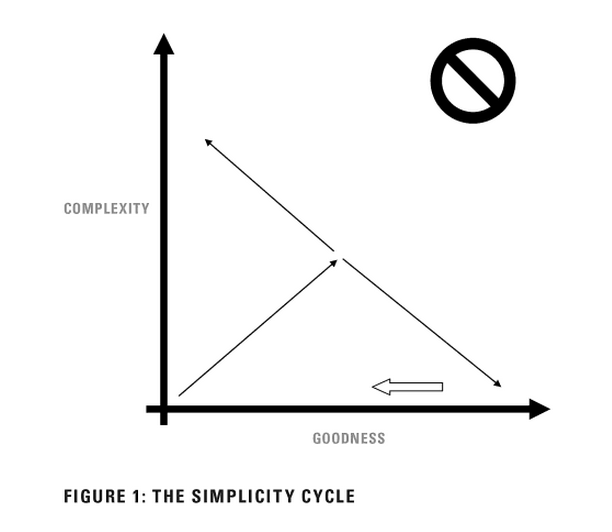Last week, I had the chance to talk with Dan Ward, author of the new book, The Simplicity Cycle: A Field Guide to Making Things Better Without Making Them Worse from HarperCollins.
Dan spent 20 years as an acquisition officer in the US Air Force, leading high-speed, low-cost technology development programs, and The Simplicity Cycle gives designers refreshing perspective on simplicity—something often assumed to be inherently good. As he points out several times in the book: “Simplicity is not the point.” The point is balancing complexity and “goodness.” Among other things, we talk about his book, his military career, and the finer points of sci-fi interface design. (MP3)
The Simplicity Cycle diagram from Dan Ward’s book of the same name.







